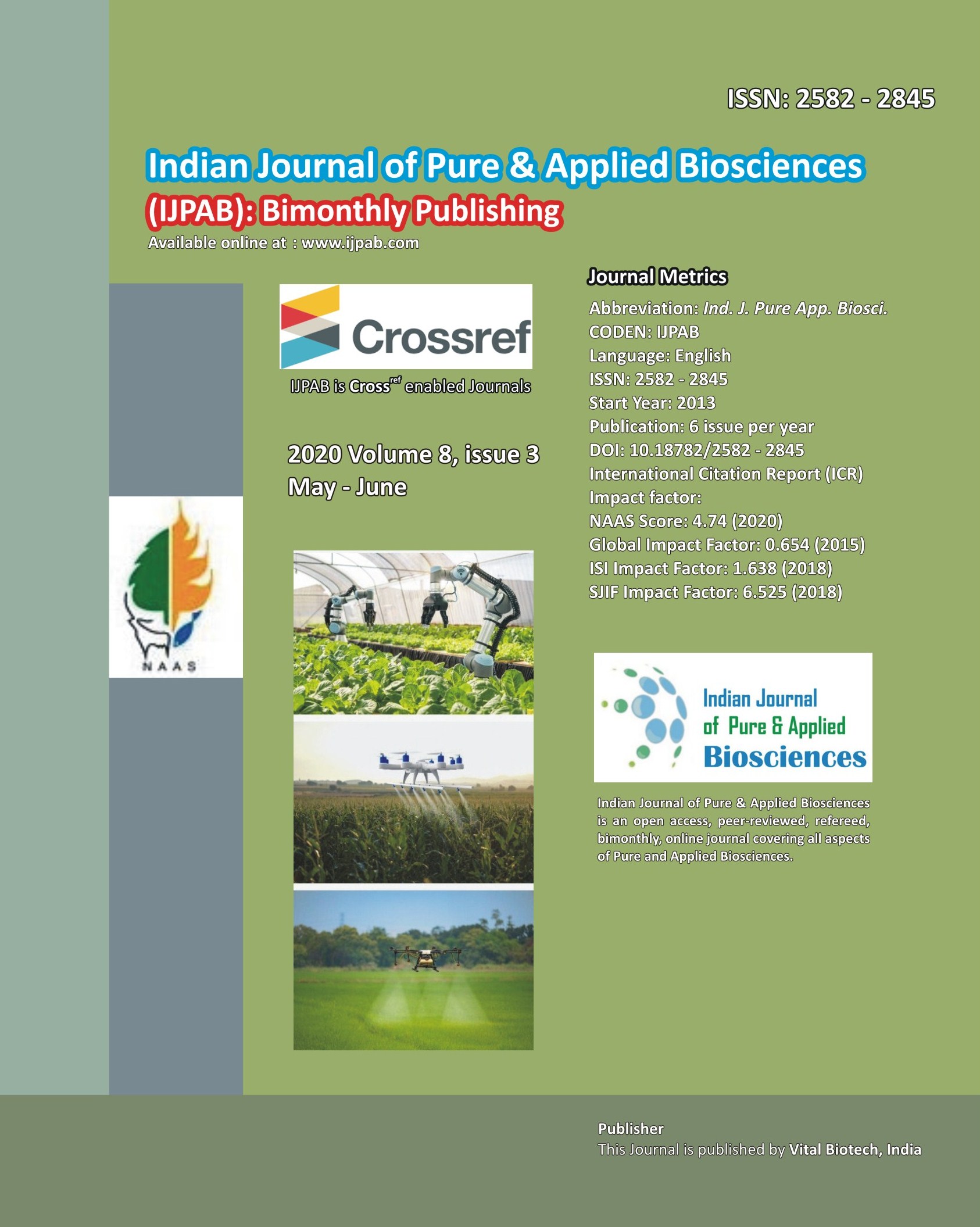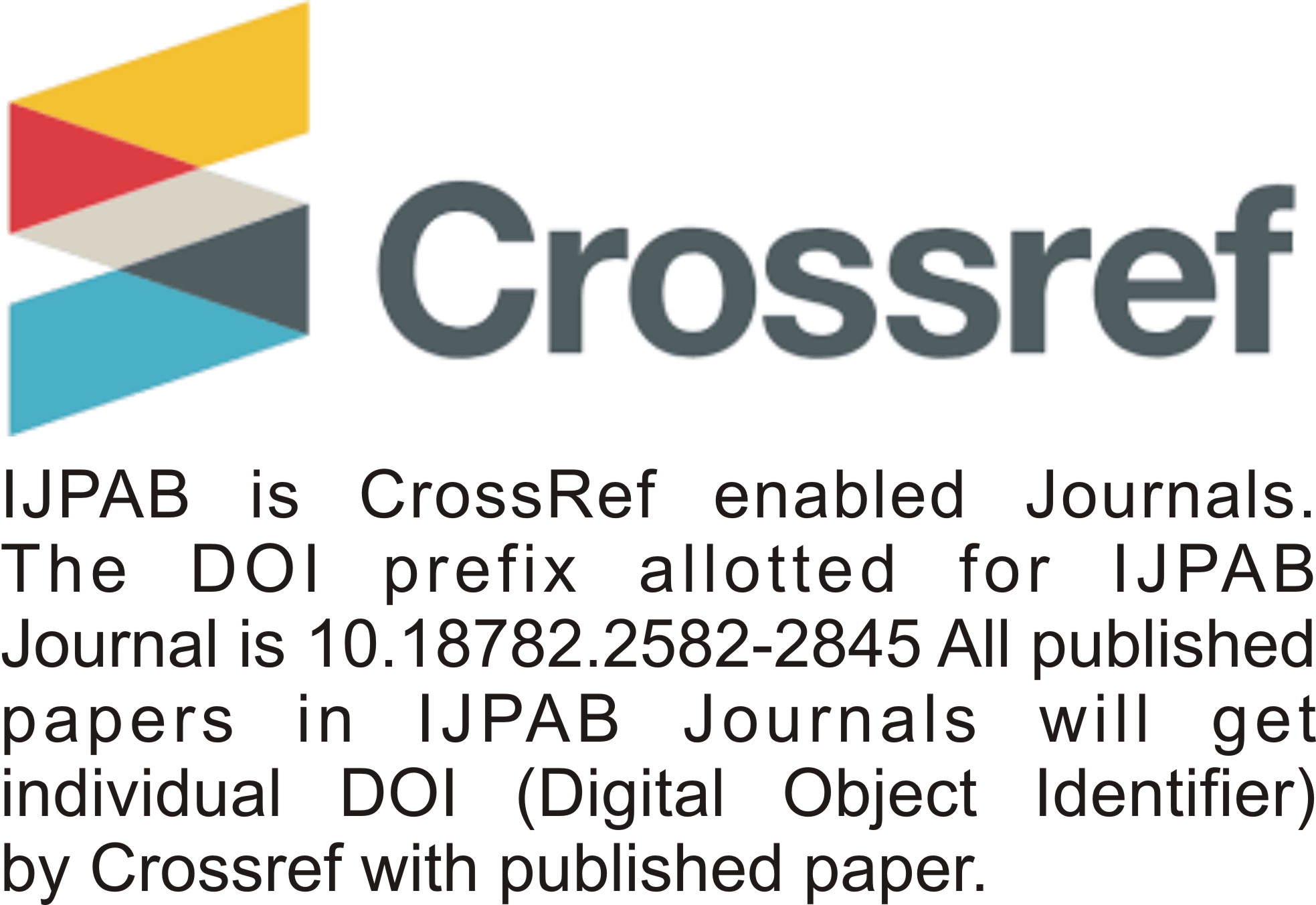
-
No. 772, Basant Vihar, Kota
Rajasthan-324009 India
-
Call Us On
+91 9784677044
-
Mail Us @
editor@ijpab.com
Indian Journal of Pure & Applied Biosciences (IJPAB)
Year : 2020, Volume : 8, Issue : 3
First page : (285) Last page : (295)
Article doi: : http://dx.doi.org/10.18782/2582-2845.8091
Review- Zero Budget Natural Farming a Key to Sustainable Agriculture: Challenges, Opportunities and Policy Intervention
Santosh Korav1*, A. K. Dhaka2, Ankur Chaudhary3 and Mamatha Y. S.4
1Ph.D Scholar, Department of Agronomy, CCSHAU Hisar, Haryana-125004
2Assistant Professor, Department of Agronomy, CCSHAU Hisar, Haryana-125004
3Asstt. Scientist (Agronomy), RRS Uchani Karnal, Haryana
4M.Sc Student, Department of Bioinformatics,
College of Bassic Science and Humanities, CCSHAU Hisar, Haryana-125004
*Corresponding Author E-mail: santoshkorav@gmail.com
Received: 7.04.2020 | Revised: 24.05.2020 | Accepted: 2.06.2020
ABSTRACT
Sixty percent of the Indian population will experience severe food deficiencies by 2050. Increased food production is urgently needed, but the high cost of production, fluctuating prices in the market are driving farmers into debt. Zero budget natural farming (ZBNF) is the best solution to reduce the input cost of farmers. The word zero budget means “no credit” and natural farming means “growing of crops without chemicals”. 1st time in the world, Japanese agriculturist M Fukuoka developed natural farming and the same trend was made in India by Mr. Subhash Palekar, he started the ZBNF concept and made successful in south India. 523,000 farmers have already converted to ZBNF in Andra Pradesh and 1 lakh farming houses in Karnataka. This concept works on four concepts they are jeevamrith, bijamrith, mulching, and soil aeration. These four concepts help better soil health, increased microbial population, and enhanced crop yield. Different astras used to control pest infestation in natural farming. Here we discussed ZBNF is requires low input cost, good soil health management, and focused on major challenges and opportunities to adopt ZBNF and what are the policies need to improve this system.
Keywords: Soil health, Astras, Credit, Input, Jeevamrith, Chemical, Yield
Full Text : PDF; Journal doi : http://dx.doi.org/10.18782
Cite this article: Korav, S., Dhaka, A.K., Chaudhary, A., & Mamatha, Y. S. (2020). Review- Zero Budget Natural Farming a Key to Sustainable Agriculture: Challenges, Opportunities and Policy intervention, Ind. J. Pure App. Biosci. 8(3), 285-295. doi: http://dx.doi.org/10.18782/2582-2845.8091

